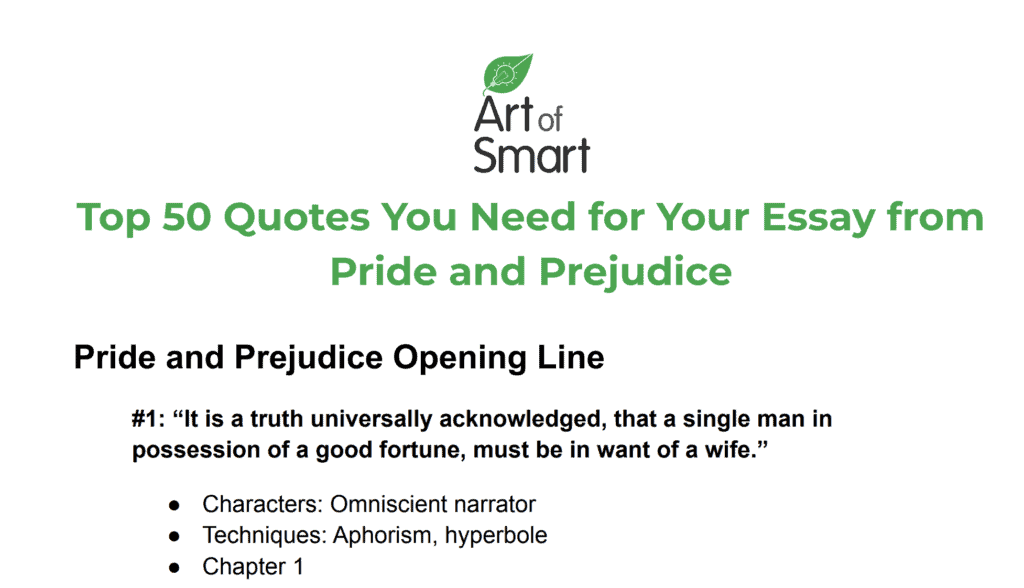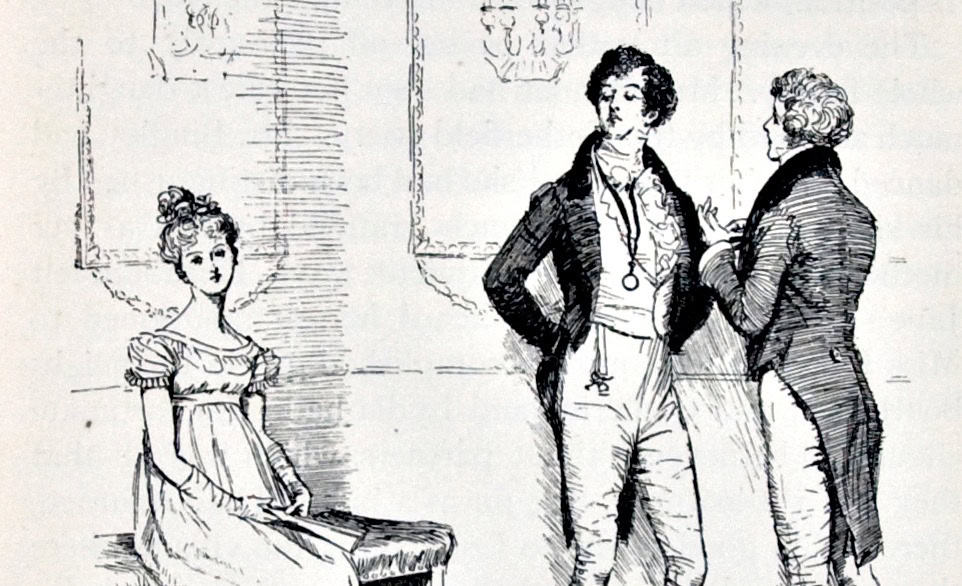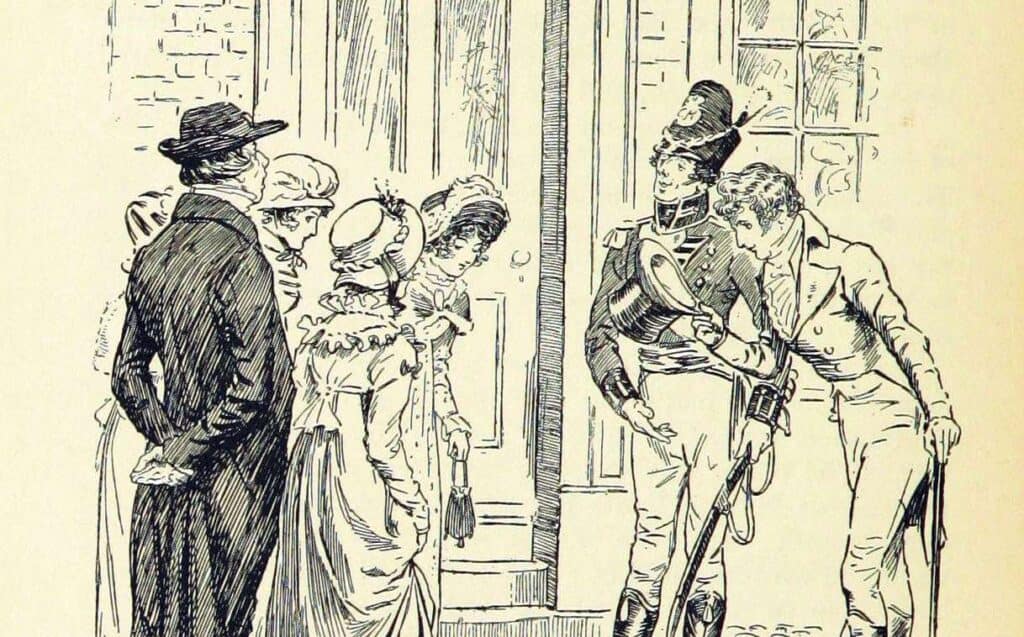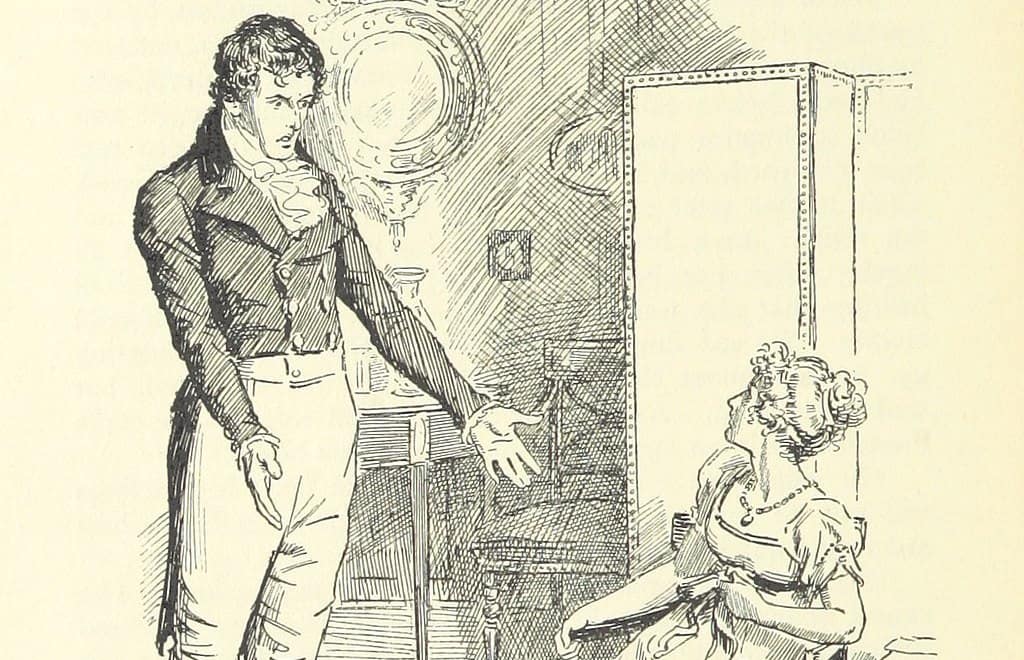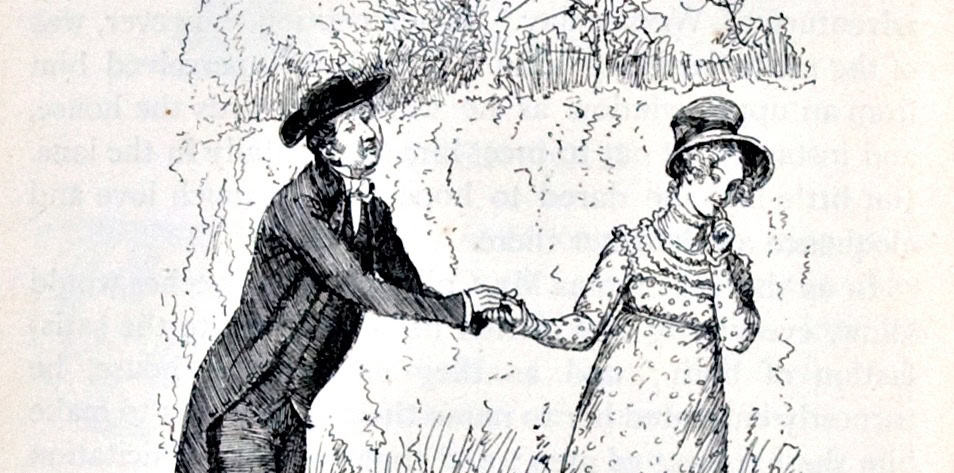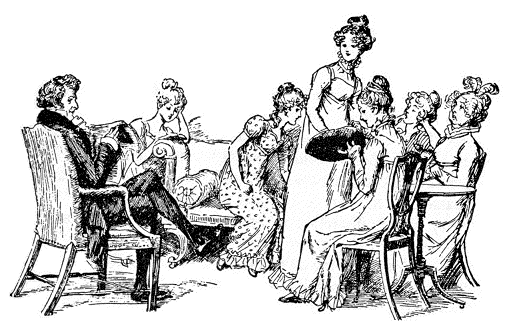Struggling to find the right quotes for your essay on Pride and Prejudice? We’ve got you covered!
Here are 50 quotes and across a range of themes that will give you inspiration and help you develop your ideas when writing about the novel.
Simply scroll down to find the top quotes you’ll want to include in your essay!
Pride and Prejudice Opening Line
First Impressions Quotes in Pride and Prejudice
Pride and Prejudice Quotes about Social Norms
Pride and Prejudice Quotes About Love
Pride and Prejudice Quotes About Marriage
Pride and Prejudice Quotes — Mr Darcy
Pride and Prejudice Quotes — Elizabeth
Pride and Prejudice Quotes about Pride
Mrs Bennet Quotes
Pride and Prejudice Opening Line
One of the neat things about Pride and Prejudice is that its playful opening line sets up the tone of the book. This book is ironic and what makes it enjoyable to read is how general assumptions about the world are broken down by the plot and characters in Pride and Prejudice.
#1: “It is a truth universally acknowledged, that a single man in possession of a good fortune, must be in want of a wife.”
- Characters: Omniscient narrator
- Techniques: Aphorism, hyperbole
- Chapter 1
First Impressions Quotes in Pride and Prejudice
The Meryton Ballroom scene is undoubtedly one of the most iconic scenes in Pride and Prejudice. It is where the taut and spirited tension between Elizabeth and Mr. Darcy first begins. Elizabeth sees Mr. Darcy as a pompous nobleman and Mr Darcy has no thoughts of matrimony — even remarking that Elizabeth and Jane will not marry well!
#2: She is tolerable, but not handsome enough to tempt me.
- Characters: Mr. Darcy (speaker), Elizabeth Bennet
- Techniques: Insulting tone, juxtaposition, archetype of the snobbish aristocrat
- Chapter 3
Analysis:
Mr. Darcy finds Elizabeth to be an acceptable person, but her appearance is not attractive enough for him to be attracted to her romantically. He implies that he is looking for someone who is not only tolerable but also more physically attractive. The quote is a reflection of his initial pride and prejudice towards her and her social class, as he thinks that he deserves better.
It is a significant moment in the story as it reveals Darcy’s initial thoughts towards Elizabeth and his tendency to judge people based on their social status, rather than their actual worth. It also sets the stage for the development of the characters and their relationship throughout the novel.
#3: “I could easily forgive his pride, if he had not mortified mine.”
- Characters: Elizabeth Bennet (speaker), Charlotte Lucas
- Techniques: First person possessive, chiasmus
- Chapter 5
#4: He was the cause, his pride and caprice were the cause, of all that Jane had suffered, and still continued to suffer.
- Characters: Elizabeth Bennet (speaker), Mr. Darcy, Jane Bennet
- Techniques: Consonance, repetition
- Chapter 33
Pride and Prejudice Quotes about Social Norms
The Regency era was full of rigid social rules. In Pride and Prejudice, Elizabeth breaks many, both getting ridiculed for it and ending up marrying Mr Darcy because of she was unconventional!
#5: “I hope you saw her petticoat, six inches deep in mud, I am absolutely certain.”
- Characters: Caroline Bingley (speaker), Elizabeth Bennet
- Techniques: Symbolism, declarative sentences, visual imagery
- Chapter 8
#6: The hall, the dining-room, and all its furniture, were examined and praised; and his commendation of everything would have touched Mrs. Bennet’s heart, but for the mortifying supposition of his viewing it all as his own future property.
- Characters: Mr. Collins
- Techniques: Listing, foreshadowing, figurative language
- Chapter 13
Analysis:
This quote is describing a scene from “Pride and Prejudice” by Jane Austen where Mr. Collins, a distant relative of the Bennet family, has come to visit their home. During his visit, he examines and praises the furnishings in the hall and dining room, but his actions are not fully appreciated by Mrs. Bennet, the matriarch of the family.
The reason for Mrs. Bennet’s lack of appreciation is revealed in the latter part of the quote. She is disappointed to think that Mr. Collins is only praising the furniture because he believes it will one day belong to him. This thought is “mortifying” to her, meaning that it causes her to feel embarrassed or humiliated. Mrs. Bennet is likely aware that Mr. Collins is set to inherit the family estate, Longbourn, after the death of her husband, and she is unhappy at the prospect of him taking possession of their home and belongings.
This quote highlights the social and economic concerns of the characters in “Pride and Prejudice,” particularly the importance placed on property and inheritance. Mr. Collins’ behavior may seem innocent enough, but it is perceived by Mrs. Bennet as a reminder of the family’s precarious social status and the possibility of losing their home and possessions.
#7: My situation in life, my connections with the family of de Bourgh, and my relationship to your own, are circumstances highly in my favour.
- Characters: Mr Collins (speaker), Elizabeth Bennet
- Techniques: Anaphora, repetition, first-person possessive
- Chapter 19
#8: “I am astonished,” said Miss Bingley, “that my father should have left so small a collection of books.—What a delightful library you have at Pemberley, Mr. Darcy!”
- Characters: Miss Bingley (speaker), Mr. Darcy
- Techniques: Hyperbole, flattering tone, archetype of the nouveau riche
- Chapter 7
#9: He is a gentleman, and I am a gentleman’s daughter. So far we are equal.
- Characters: Elizabeth Bennett (speaker), Catherine de Bourgh
- Techniques: Repetition, high modality
- Chapter 56
Analysis:
The quote means that Elizabeth feels that she and Mr. Darcy are equal in social status because they both come from respectable and well-off families. She refers to herself as “a gentleman’s daughter” which implies that her father is a respected member of society, and as such, she is considered a lady of breeding and good background. She implies that this status is equal to Mr. Darcy’s, as he also is from a good family and is considered a “gentleman” in terms of his social status.
This quote is significant in the sense that it shows Elizabeth’s pride in her own background, and her refusal to be looked down upon by Mr. Darcy. It also highlights the theme of social class and the idea that people should be judged by their moral character and actions, rather than their background or wealth. Additionally, it also reveals Elizabeth’s lack of interest in Mr. Darcy’s wealth and status and her preference for being judged as equals.
#10: Could you expect me to rejoice in the inferiority of your connections?—to congratulate myself on the hope of relations, whose condition in life is so decidedly beneath my own?
- Characters: Mr Darcy (speaker), Elizabeth Bennet
- Techniques: Rhetorical question, contrast, juxtaposition
- Chapter 34
#11: Mr. Wickham’s chief object was unquestionably my sister’s fortune, which is thirty thousand pounds.
- Characters: Mr Wickham
- Techniques: Synecdoche, objectification
- Chapter 35
#12: The Bennets were speedily pronounced to be the luckiest family in the world, though only a few weeks before, when Lydia had first run away, they had been generally proved to be marked out for misfortune.
- Characters: Lydia Bennet, the Bennet Family
- Techniques: Contrast, superlative, hyperbole
- Chapter 55
#13: “You have a very small park here,” returned Lady Catherine after a short silence…”This must be a most inconvenient sitting room for the evening
- Characters: Catherine de Bourgh (speaker), the Bennet family
- Techniques: Rude plain tone, metaphor, symbolism
- Chapter 56
#14: “They are descended, on the maternal side, from the same noble line; and, on the father’s, from respectable, honourable, and ancient—though untitled—families. Their fortune on both sides is splendid.”
- Characters: Catherine de Bourgh (speaker), Elizabeth Bennet, Mr. Darcy, Anne de Bourgh
- Techniques: Asyndeton, short truncated sentence
- Chapter 56
#15: “Heaven and earth!—of what are you thinking? Are the shades of Pemberley to be thus polluted?”
- Characters: Catherine de Bourgh (speaker), Elizabeth Bennet
- Techniques: Metaphor, symbolism, biblical allusion, exclamatory language
- Chapter 56
Analysis:
This quote is from a part in “Pride and Prejudice” by Jane Austen where Lady Catherine de Bourgh, a wealthy and influential noblewoman, confronts Elizabeth Bennet, the novel’s protagonist. Lady Catherine is angry because she has heard rumors that Elizabeth plans to marry Lady Catherine’s nephew, Mr. Darcy, who is also the owner of the estate of Pemberley.
The exclamation “Heaven and earth!” is an expression of Lady Catherine’s shock and disbelief upon hearing this news. She then goes on to ask “of what are you thinking?” which is a rhetorical question that implies that Elizabeth is not thinking at all, or is not thinking clearly, by considering a marriage with Mr. Darcy.
The second part of the quote, “Are the shades of Pemberley to be thus polluted?” is a more poetic way of expressing Lady Catherine’s outrage. The phrase “shades of Pemberley” refers to the spirit or essence of the estate, which Lady Catherine believes will be tainted or polluted by the idea of Elizabeth, who she considers to be an unsuitable match, becoming its mistress.
This quote highlights the themes of social status and class in “Pride and Prejudice,” and the importance of marriage in determining a person’s social standing. Lady Catherine is appalled at the idea of Elizabeth, who is from a lower social class, marrying into the Darcy family and potentially inheriting the prestigious Pemberley estate. Her outrage shows the high value placed on social status and the rigid class boundaries that existed in Georgian-era England.
Pride and Prejudice Quotes About Love
Austen encourages the idea of marrying for love, instead of social advantage and religious duty. While Austen shows the difficult economic reality of many women (who end up spinsters if they do not marry), the love between Mr. Darcy and Elizabeth, as well as Mr. Bingley and Jane, champions a more feminist and equal notion of marriage.
#16: To be fond of dancing was a certain step towards falling in love.
- Characters: Mr. Bingley, Jane Bennet
- Techniques: Aphorism
- Chapter 3
#17: Darcy had never been so bewitched by any woman as he was by her. He really believed, that were it not for the inferiority of her connections, he should be in some danger.
- Characters: Mr. Darcy, Elizabeth Bennet
- Techniques: Metaphor, connotations/allusions to witchery
- Chapter 10
#18: In vain I have struggled. It will not do. My feelings will not be repressed. You must allow me to tell you how ardently I admire and love you.
- Characters: Mr Darcy (speaker), Elizabeth Bennet
- Techniques: Animated tone, truncated sentence length, assonance, juxtaposition, paradox
- Chapter 34
#19: They were all of them warm in their admiration; and at that moment she felt that to be mistress of Pemberley might be something!
- Characters: Elizabeth Bennet, Mr. Gardiner, Mrs. Gardiner
- Techniques: Metonym
- Chapter 43
Analysis:
This quote is describing a moment when Elizabeth Bennet, the novel’s protagonist, is touring the grand estate of Pemberley with her friends and relatives. As they explore the grounds and admire the house, Elizabeth is struck by the thought of what it would be like to be the “mistress of Pemberley” – in other words, to be the lady of the house and in charge of such a grand and impressive estate.
The phrase “they were all of them warm in their admiration” suggests that Elizabeth’s companions are all expressing their approval and admiration of Pemberley. Elizabeth’s momentary reflection on being the mistress of the estate is a sign of her growing appreciation for its splendour and status, as well as her recognition of the social advantages that would come with such a position.
This quote highlights the importance of property and social status in Georgian-era England, which is a key theme in “Pride and Prejudice.” The idea of being the mistress of Pemberley is something that Elizabeth, who is from a lower social class, would have never dreamed possible before meeting and falling in love with Mr. Darcy, the owner of the estate. Her reflection on the idea shows her growing attraction to Darcy and the social advantages that marrying him would bring.
#20: Her astonishment however was extreme, and continually was she repeating, ‘Why is he so altered? From what can it proceed? It cannot be for me, it cannot be for my sake that his manners are thus softened.’
- Characters: Elizabeth Bennet (speaker), Mr. Darcy
- Techniques: Rhetorical question, repetition
- Chapter 43
Pride and Prejudice Quotes About Marriage
Contrary to popular belief, marriages in the 18th century did consider love — though, it was definitely unequal! Men could propose to the woman of her choice, however women could not just accept anyone without their approval of their fathers.
#21: Happiness in marriage is entirely a matter of chance. If the dispositions of the parties are ever so well known to each other, or ever so similar beforehand, it does not advance their felicity in the least.
- Characters: Charlotte Lucas (speaker), Elizabeth Bennet
- Techniques: Hyperbole, logos, defeated tone
- Chapter 6
#22: As I must therefore conclude that you are not serious in your rejection of me, I shall choose to attribute it to your wish of increasing my love by suspense, according to the usual practice of elegant females.
- Characters: Mr. Collins (speaker), Elizabeth Bennet
- Techniques: Asyndeton, unnecessary verbose language, comical mood
- Chapter 19
#23: Do not consider me now as an elegant female, intending to plague you, but as a rational creature, speaking the truth from her heart.
- Characters: Elizabeth Bennet (speaker), Mr. Collins
- Techniques: Contrast, declarative language
- Chapter 19
Analysis:
This quote is spoken by Elizabeth Bennet, the novel’s protagonist, to Mr. Darcy, the man she has been both attracted to and at odds with throughout the story. Elizabeth is speaking to Darcy about his past behaviour towards her, which she believes has been hurtful and unkind.
The first part of the quote, “Do not consider me now as an elegant female, intending to plague you,” is a reference to the social norms of the time period in which the novel is set. Elizabeth is acknowledging that, as a woman, she is expected to be genteel and well-mannered in her interactions with men, especially those of higher social status like Mr. Darcy. However, she is also acknowledging that her previous behaviour towards him has not necessarily adhered to these expectations.
The second part of the quote, “but as a rational creature, speaking the truth from her heart,” is Elizabeth’s way of asking Darcy to take her seriously and to listen to what she has to say. She is asserting her own intellect and her own agency as an individual, and is asking to be judged based on the content of her words, rather than on her gender or social status.
This quote highlights the social and gender dynamics that were prevalent in Georgian-era England, and the challenges that women like Elizabeth faced in asserting themselves and speaking their minds. It also showcases Elizabeth’s strength of character and her willingness to challenge societal norms in order to be heard and respected.
#24: marriage had always been her object; it was the only provision for well-educated young women of small fortune, and however uncertain of giving happiness, must be their pleasantest preservative from want.
- Characters: Charlotte Lucas
- Techniques: Alliteration, foreshadowing
- Chapter 22
#25: I am not romantic, you know; I never was. I ask only a comfortable home; and considering Mr. Collins’s character, connection, and situation in life, I am convinced that my chance of happiness with him is as fair as most people can boast on entering the marriage state.
- Characters: Charlotte Lucas (speaker), Elizabeth Bennet
- Techniques: Anaphora, alliteration, simile, lexical Chain
- Chapter 22
#26: Lydia will never be easy until she has exposed herself in some public place or other, and we can never expect her to do it with so little expense or inconvenience to her family as under the present circumstances.
- Characters: Mr. Bennet (speaker), Elizabeth Bennet
- Techniques: Hyperbole, character flaw
- Chapter 40
#27: “Oh! Lizzy, why am I thus singled from my family, and blessed above them all! If I could but see you as happy! If there were but such another man for you!”
- Characters: Jane Bennet (speaker), Elizabeth Bennet
- Techniques: Exclamation, fragmented language
- Chapter 55
#28: “Though I know it must be a scandalous falsehood, though I would not injure him so much as to suppose the truth of it possible, I instantly resolved on setting off for this place, that I might make my sentiments known to you.”
- Characters: Catherine de Bourgh (speaker), Elizabeth Bennet
- Techniques: Paradox, satire
- Chapter 56
#29: “Neither duty, nor honour, nor gratitude,” replied Elizabeth, “have any possible claim on me, in the present instance. No principle of either would be violated by my marriage with Mr. Darcy”
- Characters: Elizabeth Bennet (speaker), Catherine de Bourgh
- Techniques: Consonance, parallel syntax
- Chapter 56
#30: By you, I was properly humbled. I came to you without a doubt of my reception. You showed me how insufficient were all my pretensions to please a woman worthy of being pleased.
- Characters: Mr. Darcy (speaker), Elizabeth Bennet
- Techniques: Repetition, consonance
- Chapter 58
#31: Such relief, however, as it was in her power to afford, by the practice of what might be called economy in her own private expenses, she frequently sent them.
- Characters: Elizabeth Bennet, Lydia Bennet
- Techniques: Euphemism, symbolism
- Chapter 61
#32: Kitty, to her very material advantage, spent the chief of her time with her two elder sisters. In society so superior to what she had generally known, her improvement was great.
- Characters: Kitty Bennet, Elizabeth Bennet, Jane Bennet
- Techniques: Consonance, euphemism, metonymy
- Chapter 61
Pride and Prejudice — Mr Darcy
#33: A lady’s imagination is very rapid; it jumps from admiration to love, from love to matrimony in a moment.
- Characters: Mr. Darcy (speaker), Miss Bingley
- Techniques: Anaphora, metaphor
- Chapter 6
#34: “All this she must possess,” added Darcy, “and to all this she must yet add something more substantial, in the improvement of her mind by extensive reading.”
- Characters: Mr. Darcy (speaker), Elizabeth Bennet, Miss Bingley
- Techniques: Declarative language, argument
- Chapter 7
#35: “My temper would perhaps be called resentful. My good opinion once lost, is lost forever.”
- Characters: Mr. Darcy (speaker)
- Techniques: Repetition, hyperbole
- Chapter 11
#36: “And your defect is to hate everybody.”/“And yours,” he replied with a smile, “is willfully to misunderstand them.
- Characters: Mr. Darcy (speaker), Elizabeth Bennet
- Techniques: Parallel syntax, subversion
- Chapter 11
Pride and Prejudice Quotes — Elizabeth
#37: What are young men to rocks and mountains?
- Characters: Elizabeth Bennet (speaker)
- Techniques: Rhetorical question, juxtaposition
- Chapter 27
#38: With these rooms I might now have been familiarly acquainted! Instead of viewing them as a stranger, I might have rejoiced in them as my own, and welcomed to them as visitors my uncle and aunt.
- Characters: Elizabeth Bennet
- Techniques: Exclamatory language
- Chapter 43
#39: [Lydia] has no money, no connections, nothing that can tempt him to — she is lost forever.
- Characters: Elizabeth Bennet (Speaker), Lydia Bennet
- Techniques: Conduplicatio (repetition), parataxis (short sentence after long sentences)
- Chapter 46
#40: I know that you could be neither happy nor respectable, unless you truly esteemed your husband; unless you looked up to him as a superior.
- Characters: Mr. Bennet (speaker), Elizabeth Bennet
- Techniques: Parataxis, consonance
- Chapter 59
Pride and Prejudice Quotes about Pride
#41: She began now to comprehend that he was exactly the man, who, in disposition and talents, would most suit her.
- Characters: Elizabeth Bennet
- Techniques: Epiphany, plain language
- Chapter 50
#42: You were disgusted with the women who were always speaking, and looking, and thinking for your approbation alone. I roused, and interested you, because I was so unlike them.
- Characters: Elizabeth Bennet (speaker)
- Techniques: Juxtaposition, polysyndeton
- Chapter 60
#43: His character was decided. He was the proudest, most disagreeable man in the world, and everybody hoped that he would never come there again.
- Characters: Mr. Darcy
- Techniques: Superlative
- Chapter 3
#44: If you have not been mistaken here, I must have been in error.
- Characters: Mr. Darcy (speaker), Elizabeth Bennet
- Techniques: Tautology
- Chapter 35
#45: If I have wounded your sister’s feelings, it was unknowingly done and though the motives which governed me may to you very naturally appear insufficient, I have not yet learnt to condemn them.
- Characters: Mr. Darcy (speaker), Elizabeth Bennet
- Techniques: Pathos, apologetic tone
- Chapter 35
Analysis:
This quote is spoken by Mr. Darcy to Elizabeth Bennet in a conversation where he is attempting to explain his behaviour towards her sister, Jane. Darcy is responding to Elizabeth’s accusation that he has interfered with the relationship between Jane and his friend Mr. Bingley, causing Jane to be hurt and disappointed.
In the quote, Darcy acknowledges that he may have hurt Jane’s feelings, but claims that he did not do so intentionally. He also defends his actions by saying that the motives behind them may not be apparent or understandable to Elizabeth, but he does not regret them. By saying “I have not yet learnt to condemn them,” Darcy is implying that he still believes his actions were justified, despite their negative consequences.
This quote highlights the complexity of Darcy’s character, as well as the theme of misunderstandings that runs throughout the novel. Darcy’s behaviour towards Jane and Bingley is motivated by his concern that Jane does not truly love Bingley and is only seeking a wealthy marriage. However, Elizabeth and her family see Darcy’s actions as snobbish and condescending, leading to the conflict between them. Darcy’s admission that he may have hurt Jane’s feelings shows a softer, more vulnerable side to his character, while his defence of his actions reveals his pride and stubbornness.
#46: She grew absolutely ashamed of herself. Of neither Darcy nor Wickham could she think without feeling she had been blind, partial, prejudiced, absurd.
- Characters: Elizabeth Bennet (speaker)
- Techniques: Asyndeton, hyperbole
- Chapter 36
#47: Till this moment I never knew myself.
- Characters: Elizabeth Bennet (speaker)
- Techniques: Epiphany, catharsis
- Chapter 36
#48: And yet I meant to be uncommonly clever in taking so decided a dislike to him, without any reason.
- Characters: Elizabeth Bennet (speaker)
- Techniques: Contrast, paradox
- Chapter 40
#49: She blushed again and again over the perverseness of the meeting. And his behaviour, so strikingly altered—what could it mean? That he should even speak to her was amazing!—but to speak with such civility, to inquire after her family!
- Characters: Elizabeth Bennet (speaker), Mr. Darcy
- Techniques: Rhetorical question, subversion, fragmented language
- Chapter 43
Mrs Bennet Quotes
#50: The business of her life was to get her daughters married; its solace was visiting and news.
- Characters: Mrs. Bennet
- Techniques: Characterisation, contrast
- Chapter 1
#51: Her hopes were answered; Jane had not been gone long before it rained hard. Her sisters were uneasy for her, but her mother was delighted.
- Characters: Mrs. Bennet, Jane Bennet
- Techniques: Juxtaposition, foreshadowing
- Chapter 8
#52: Happy for all her maternal feelings was the day on which Mrs. Bennet got rid of her two most deserving daughters.
- Characters: Mrs. Bennet (speaker), Elizabeth Bennet, Jane Bennet
- Techniques: Satire, juxtaposition
- Chapter 61
Analysis:
This quote is a sarcastic comment on Mrs. Bennet’s character. Mrs. Bennet is the mother of five daughters, and her primary concern is to find wealthy husbands for them. In the quote, the narrator is commenting on Mrs. Bennet’s joy at seeing her two oldest and most eligible daughters, Jane and Elizabeth, get married.
The phrase “happy for all her maternal feelings” is a way of saying that Mrs. Bennet is happy because her daughters’ marriages bring her social and financial security, rather than out of genuine love and concern for her daughters’ happiness. The phrase “got rid of her two most deserving daughters” is also a sarcastic comment, as it implies that Mrs. Bennet sees her daughters as objects to be disposed of, rather than individuals with their own hopes and dreams.
This quote highlights the theme of marriage and social status that runs throughout the novel. Mrs. Bennet’s fixation on finding wealthy husbands for her daughters is a reflection of the social expectations of the time period, where a woman’s value was often measured by her ability to secure a good marriage. However, the quote also shows the irony and humour in Austen’s writing, as she often uses satire to critique the societal norms of her time.
Check out our ultimate guide to Unit 4 of QCE English!
On the hunt for quotes from other texts?
Check out our list of quotes for the following texts:
- The Merchant of Venice
- Frankenstein
- Lord of the Flies
- Blade Runner
- Hamlet
- To Kill a Mockingbird
- Never Let Me Go
- The Great Gatsby
- One Flew Over the Cuckoo’s Nest
- The Dressmaker
- Jasper Jones
- The Curious Incident of the Dog in the Night-Time
- The Crucible
Are you looking for some extra help with your Pride and Prejudice analysis of quotes?
We have an incredible team of English tutors and mentors!
We can help you master your analysis of Pride and Prejudice by taking you through the summary, key characters, quotes and themes. We’ll also help you ace your upcoming English assessments with personalised lessons conducted one-on-one in your home, online or at one of our state of the art campuses in Hornsby or the Hills!
We’ve supported over 8,000 students over the last 11 years, and on average our students score mark improvements of over 20%!
To find out more and get started with an inspirational English tutor and mentor, get in touch today or give us a ring on 1300 267 888!
Lynn Chen is a Content Writer at Art of Smart Education and is a Communication student at UTS with a major in Creative Writing. Lynn’s articles have been published in Vertigo, The Comma, and Shut Up and Go. In her spare time, she also writes poetry.


